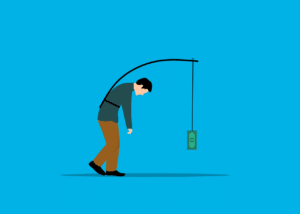What is Bitcoin?
You may never have heard of it, but it’s time you did. Bitcoin is taking the online marketplace by storm. But what is it? It’s a form of digital currency: money you can’t touch, feel, or smell, but money all the same. It is what’s known as a ‘crypto-currency’: a digital cash system.
It is also completely decentralized, meaning that it is not backed by a physical commodity (gold) or any government or bank. Japan has legalized crypto-currencies, and other countries will likely follow: just a few days ago (June 23rd) news of China developing its own crypto-currency circulated. All you do is buy some bitcoin using normal currency online, and then send coins over the internet.
How to Buy Bitcoin
Currency exchanges exist where you can buy Bitcoins for euros, dollars, and other global currencies. The amount you buy is then placed in a digital wallet. One of the touted advantages of Bitcoins is that, unlike standard online purchases, the fees are much lower or even non-existent due to its decentralized status. In other words, you won’t have to pay additional expenses on top of the actual price of the goods or item you purchase.
Where Can You Spend Bitcoin?
Bitcoin is the best-known form of digital currency, and more and more companies are getting on board to accept it as a form of payment. It’s easy enough to find out where it can be used. Companies that accept it as a payment option include Microsoft, WordPress, a number of online travel agencies, and some notable dating sites and online retailers.
Bitcoin Success Stories
Due to its growing use and popularity as a form of currency, there are those who buy Bitcoin as an investment strategy. It’s a bit like stocks and shares in this sense: buying a little bit when no one knows about it can increase a hundred fold. There are a number of Bitcoin success stories which have turned savvy investors into millionaires. The most recent successful Bitcoin investor is Erik Finman, who invested $1000 in 2011 valued at only $12. He currently holds 403 Bitcoins, which now represent a whopping $1.09 million!
Possible Consequences of Bitcoin
While not a particularly ominous concept, the idea of Bitcoin, for me, is wildly apocalyptic and reeks of something you might encounter in the opening pages of a dystopian novel as an explanation for the Armageddon that follows. Call me a cynic, but in a world that is increasingly devoid of sensation and authentic experience, Bitcoin represents another step towards complete automation. Computers may be more efficient; online currencies may be more beneficial, but as Banquo eloquently said in Shakespeare’s Macbeth:
And oftentimes, to win us to our harm,
The instruments of darkness tell us truths ,
Win us with honest trifles, to betray’s
In deepest consequence. (Act 1 Scene 3, Lines 120-126)
Perhaps I am forming connections where there are none, but technological progress always wins us over with its shiny appearance of efficiency and increased comfort, only to draw us further and further away from our natural, hard-working selves. Who of us can confidently and wholeheartedly claim that the internet, for example, has actually made our lives better? There are countless articles which assess the connection between social media and an increased feeling of alienation, for example.
My initial feeling would be that initiatives like Bitcoin amplify globalisation. Globalisation, while promoting itself as a friend of cultural diversity, actually threatens it. The more globalised the world becomes, I would argue, the greater likelihood of cultural sameness. A unified global currency, such as Bitcoin would like to be, does little but make me think that perhaps the conspiracy theorists who talk about a New World Order may not be as loony as they are often portrayed in mainstream discourse.
Ah, but then, I was also so fond of those tin foil hats.
by Gillian Rixey
(Gillian is a PhD qualified freelance writer and scholar born in Ireland but currently residing in the United States.)

















































